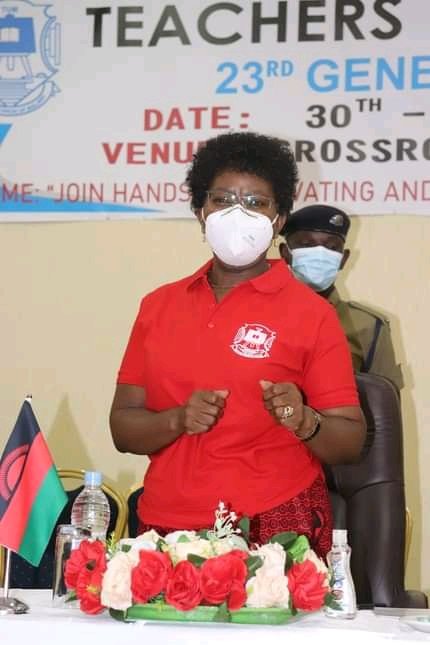By Chisomo Phiri
Minister of Education Agnes Nyalonje says in an effort to ensure teacher availability in hard to reach schools, the government has revised hardship allowances for all teachers who work in remote and hard to reach schools.
She was speaking on Thursday at Teachers Union of Malawi ( TUM) 23rd General Congress Meeting in Lilongwe.
Nyalonje said,teachers in very hard to reach schools will be getting MK25,000 as their hardship allowance per month and those in semi-hard to reach schools will be getting MK15,000 per month, adding that the allowance will be attached to the school and not individual teacher.

” The government has revised hardship allowances for teachers who work in hard to reach schools. The allowances will be attached to the school and not individual teacher. We want teachers in the remotest schools to enjoy working too,” said Nyalonje.
On disbursement of salary arrears, she said, as a Minister, she is aware that delays in disbursement of salary arrears is yet another age-old challenge . She said, her Ministry is working hard to make this a story of the past.
” My Ministry has critically analysed the causes of salary arrears and has put in place measures to ensure that the generation of salary arrears is minimized and what the Ministry owes teachers is expeditiously processed and paid out,” she said.
Nyalonje added that currently, her Ministry has facilitated the auditing of secondary school teachers’ arrears which are now ready for payment.
As for primary teachers’ arrears, she said most councils have finalized working on salary arrears files and what remains is for the councils to call for auditors from the National Audit Office to go into various councils and conduct the audits, after which payments will be done.
” My Ministry will work closely with the Ministry of Local Government to ensure that the auditing activity is budgeted for 2022/2023 Budget,” she added.
This year’s Teachers’ General Congress meeting was being held under the theme : ” Join Hands in Motivating Teachers For Quality Education,” where teachers representatives from across the country as well as officials from sister unions of Zambia, South Africa, Nambia and Botswana were attending.


